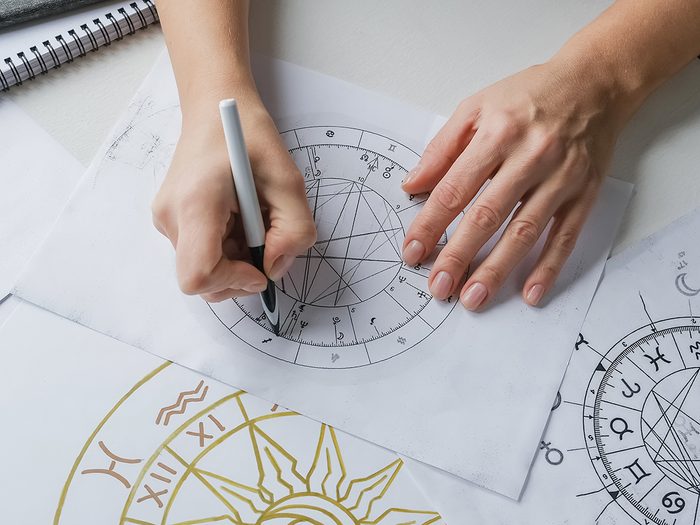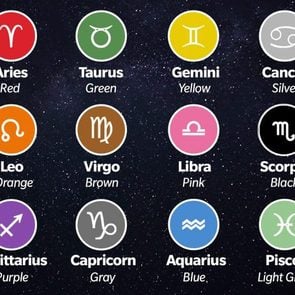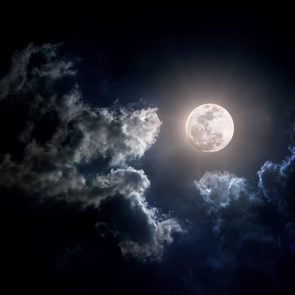The Truth About Horoscopes

It seems as though public interest in horoscopes has reached a new peak. Who better to explain the phenomenon than internationally respected astrologer Jessica Lanyadoo?
Our editors and experts handpick every product we feature. We may earn a commission from your purchases.
Reader’s Digest Canada: Astrology became more trendy than ever in the last few years, and particularly since the pandemic. Why is that?
Jessica Lanyadoo: People tend to turn to astrology during periods of instability, and the last few years have definitely been that—political unrest, the climate crisis and now fears around health and economic well-being. When times get tough, people want to feel like they’re part of something bigger than just the day-to-day grind. Some people may turn to religion or places of worship to find that meaning, and others turn to astrology.
It’s true, the future feels more uncertain than ever. Any chance you can tell us what’s coming?
People tend to misunderstand that part of what I do. I’m not like a fortune teller. I am able to interpret what could happen for an individual in the future, based on existing patterns and data, but I would rather give tools than predictions.
Okay, so can you break down how it all works, exactly?
Astrology is the study of the positioning of the different celestial bodies—planets, the sun, the moon—and how their relationship to each other has an effect on personality and human behaviour. I use The American Ephemeris for the 21st Century, a book that contains thousands of data points—such as position and movement of those celestial bodies over time—which I can then interpret. On a recent episode of my podcast, I looked at a Virgo’s birth chart to help that listener unpack the reasons why they had compulsive thoughts and irritations at work. There is a lot of focus on astrology as a window into the future, but it’s also a coping system for the present—the foundation upon which our future lives and grows.
Saturn and Uranus were “squaring to each other” in 2021. What does that mean?
In astrology, squares generally indicate tension or discord, so it’s not great news. Saturn is related to hierarchies, governments and structures, so it might have referred to political instability in the United States and around the world.
Do people in positions of power look to the stars for guidance?
They do. Ronald Reagan had an astrologer whom he consulted throughout his presidency. At the time, it was a closely guarded secret. Stigma still exists, and it’s often not something a person in a position of power would share readily. But overall, there is less stigma now. People used to think it was just this New Age hippie thing, but for the last 20 years, I’ve had clients who are tech leaders, doctors and lawyers—all of whom are interested in discussing every detail of their birth chart.
For people who just want to dip a toe into astrology, how can they get the most out of the type of horoscope that appears in the newspaper?
The main thing is to take it into the context of your life. So let’s say your horoscope says this is not a good month for buying or selling, but you’ve just made an offer on a new house. Don’t try to get out of the sale, just be extra cautious: double-check all the paperwork, assume as little risk as possible. Or if you meet someone who seems great, but their sign doesn’t match up with yours, don’t break up with them. The idea is that a horoscope can provide guidance, but it’s not a reason to abandon common sense.
Now that you know why astrology is so popular today, find out the most (and least) polite zodiac signs.






